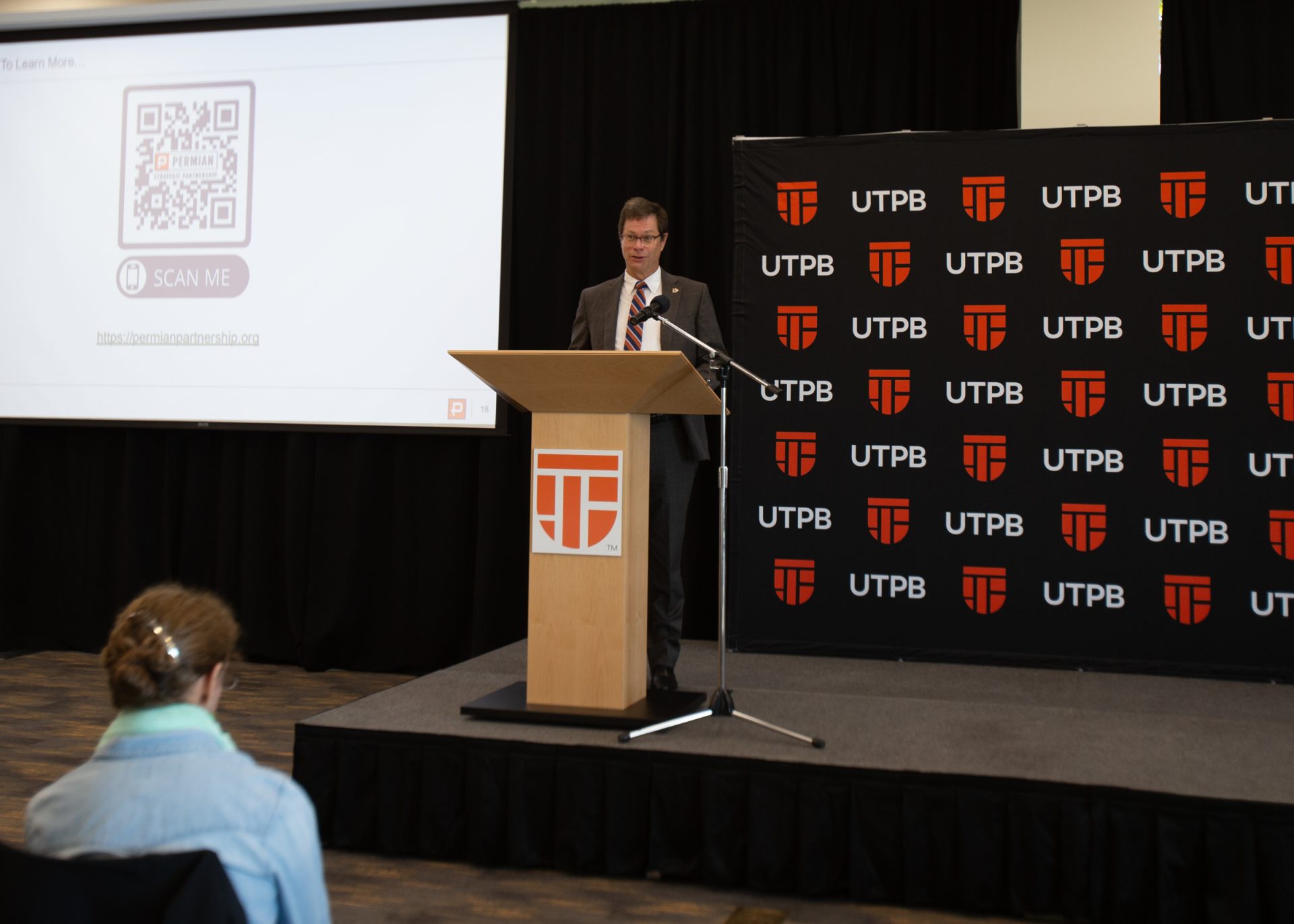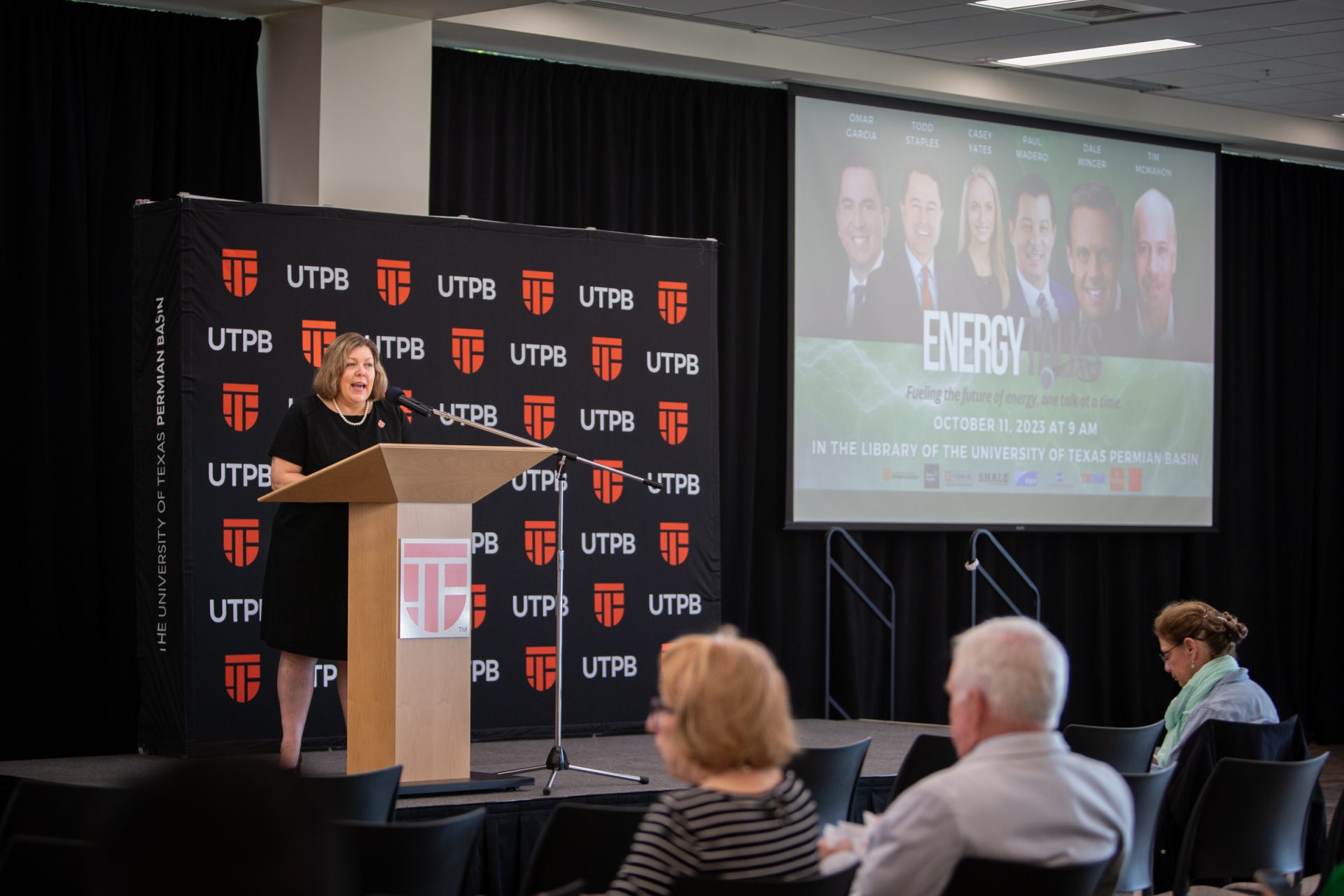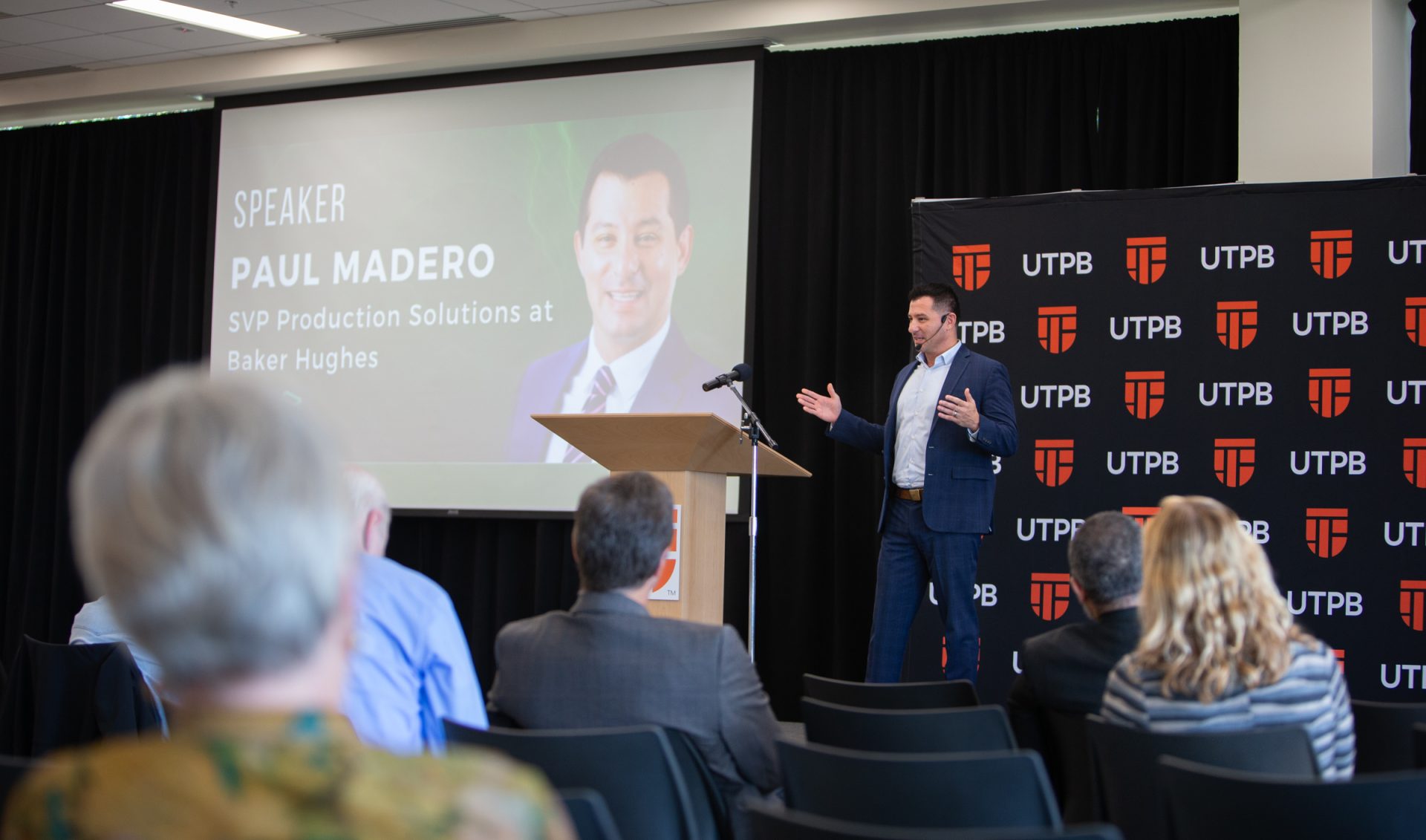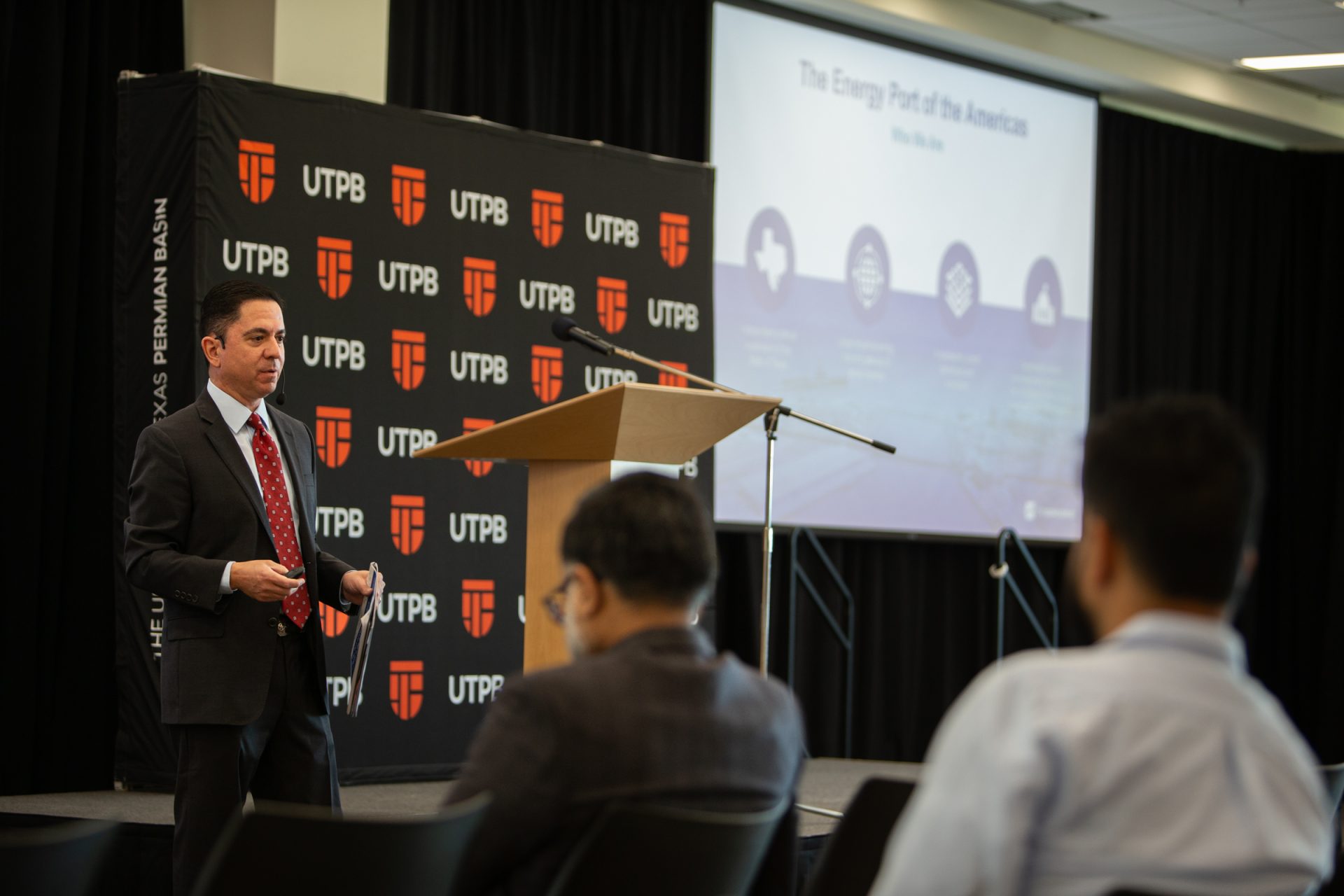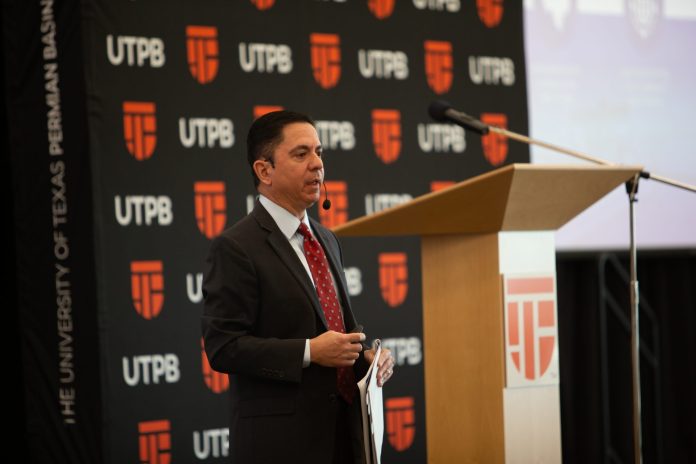
From Port Corpus Christi and innovations to electrical use patterns around the country and world, Energy Talks covered the gamut Wednesday at the University of Texas Permian Basin library.
Hosted by Shale Oil & Gas Magazine, Energy Talks is a series that brings together leaders from across the oil and gas industry, the political arena, and academia to foster meaningful conversations about how energy affects our lives, a news release said.
Presenters included Omar Garcia, Chief External Affairs Officer for Port Corpus Christi; Paul Madero, senior vice president, Production Solutions at Baker Hughes; Tim McMahon, project manager and principal investigator at University of Texas at Austin; Todd Staples, President of Texas Oil & Gas Association; Dale Winger, managing director for Halliburton Labs; and Casey Yates, director of finance for the Permian Strategic Partnership.
“The Port of Corpus Christi is the largest energy export gateway in America. The majority of what we do at the port is export crude from the Permian Basin into international markets,” Garcia said. “On any given day, anywhere between 2.3 to 3.4 million barrels of crude leave the Port of Corpus Christi to our trading partners around the world.”
Before taking the stage, “My talk will focus a little bit on that, but also as we look to the future, the energy transition space and what that means to the region and to the state,” Garcia said.
He said there are three major pipelines that connect the Port of Corpus Christi to the Permian Basin.
“Those pipes are full and as soon as we receive that crude, that crude is being exported around the world. At this time, we’re not seeing any delays in crude being delivered to the Port of Corpus,” Garcia added.
Winger of Halliburton Labs said he would be talking about advancing energy technology.
“Haliburton Labs works with early stage innovative energy companies and helps them use Haliburton’s facilities and capacities and global business network to scale up their technologies,” Winger said.
“We’re now working with 25 companies all over the world that they’re all early stage, meaning some of them are as small as just a few people when we meet them. They usually have a technology, a prototype, some sort of innovation and we help them scale it up to the requirement off of the energy system,” Winger added.
Dean of the College of Business Steve Beach said it’s critical for UTPB to be able to bring in events like this.
“Our ability to bring in folks from across the industry, from across affected groups by the industry in a very positive atmosphere to have open discussions about these sorts of topics is critical for the region. That’s what UTPB really has to focus on is taking care of the region and then the industry also,” Beach said.
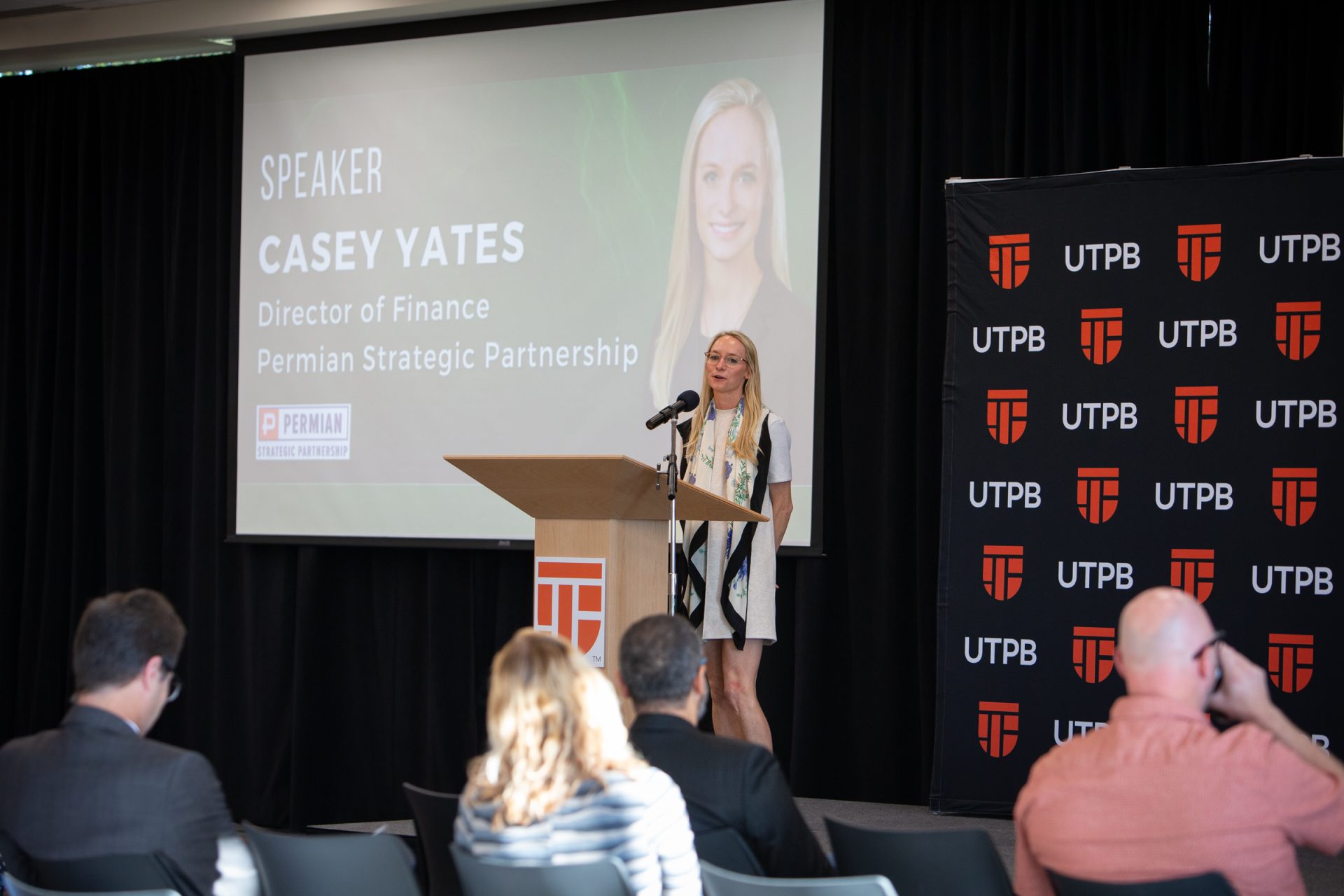
Yates of PSP presented background on the organization, its focus and things it has funded in the Permian Basin and Southeast New Mexico.
Over the last four and a half years, PSP has invested $151 million into those communities.
“That’s not just Midland-Odessa, that’s across the Permian Basin. With help from many other community partners, foundations, institutions and universities, we’ve leveraged that into $1.5 billion in investments. A large chunk of those investments come from advocacy dollars particularly from our state and in particular with the Texas Department of Transportation and New Mexico Department of Transportation. Although roads are very expensive and those are dollars that we can’t quite come up with our member companies, the advocacy for those dollars with these two different departments of transportation is necessary in order to keep our roads safe and infrastructure improving year after year,” Yates said.
She noted that PSP has invested about $75 million into education; healthcare, $60 million; workforce a little under $15 million; road safety, $8 million; and housing initiative support.
Education and workforce continue to be on the top of their list from a focus standpoint, Yates said.
Todd Staples, president of the Texas Association of Oil and Gas, talked about how oil and natural gas continue to power progress.
“I’m going to focus on how oil and natural gas are essential to national and energy security and how it plays an irreplaceable role in empowering human progress,” Staples said.
Asked if the Permian Basin is a big part of that, Staples said the Permian Basin is the American dream.
“It truly embodies where enthusiasm and opportunity create success. This region is capitalizing on these God-blessed natural resources and a powerful way to meet global energy demand. At a time when Russia is invading Ukraine and Hamas is invading Israel, it’s a stark reminder of how fragile our world really is and how important domestic energy supply is to meeting our needs here and abroad,” he added.

Despite renewables being more available in the market, Staples said fossil fuels provide about 80 percent of global energy demand.
“Stanford University recently announced that to transition our energy supply would be a price tag of $62 trillion,” Staples said.
That would be about 10 U.S. budgets devoted to nothing else, which is an unrealistic expectation.
“Having said that, oil and natural gas companies are focused on both our economy and our environment and have a plan for both to succeed,” he said.
The Texas Oil and Gas Association represents about 90 percent of Texas’ crude oil production.
“Our members operate over 80 percent of our refining capacity. The members are responsible for a vast majority of our state’s pipelines. LNG facilities are members of TXOGA, as well as our service companies that are very robust and so our membership covers every sector of the industry and a substantial amount of each sector,” Staples said.
He added that he would talk about financial impact, reduction in emission and how industry is meeting the societal expectations of a lower emissions profile.
“Oil and gas is delivering that,” Staples said.
He conceded that oil and gas has been shy about talking about that.
Staples said oil and natural gas have a powerful story to tell.
“There are so many misinformation campaigns it leaves everyday consumers with the wrong impression. The fact is that oil and natural gas” are a factor in 96 percent of the products people use every day, he added. Examples are medicine, makeup, tires, toothpaste and trash bags.
“The daily products that are irreplaceable and we need to embrace that and we need to demonstrate how we are being sensitive to the concerns,” Staples said.
“This whole conversation about an energy transition is truly about an energy addition. Our global population is expected to grow to 10 billion people by the year 2050, so we’re going to need more oil, more gas, more wind, more solar, more hydrogen, more biofuels, more batteries to meet this energy demand,” he added.
Staples said hydrogen is being talked about at very high levels.
“I believe hydrogen and fuel cells and small nuclear reactors are all things that we need to let the marketplace work and determine what are the best solutions for consumers. I think government needs to resist the urge to tip the scales. I think we need to allow the marketplace to be the determinant and consumers to choose the sources that they like the most that are affordable,” Staples said.
He added that 80 percent of the world’s population doesn’t have access to reliable, affordable energy like people in the U.S. do.
“I think it’s dangerous to suggest that this growing population of the world is not going to demand a better quality of life that oil and natural gas has provided the United States and our closest allies,” Staples said.

